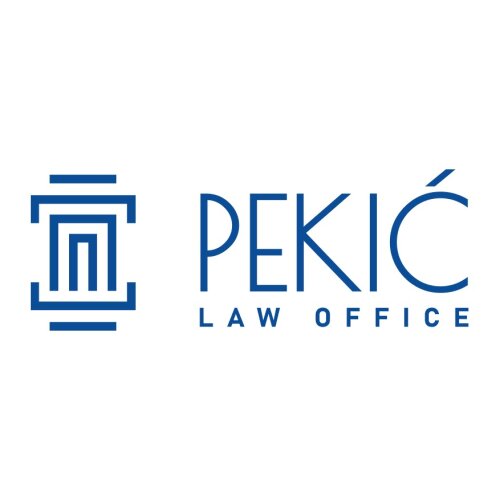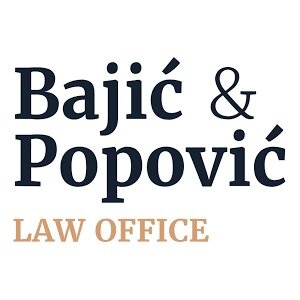Best Project Finance Lawyers in Serbia
Share your needs with us, get contacted by law firms.
Free. Takes 2 min.
Or refine your search by selecting a city:
List of the best lawyers in Serbia
Legal guides written by Business Law office - Advokatska Kancelarija:
- Why Invest In Serbia
About Project Finance Law in Serbia
Project Finance in Serbia refers to the legal and financial structures used to fund major infrastructure and industrial projects, such as power plants, highways, renewable energy facilities, and public-private partnership (PPP) initiatives. This method of financing relies primarily on the future cash flow of the project itself to secure and repay borrowed funds. Serbian Project Finance law merges elements from several fields, including banking, contract, energy, and construction law, and is shaped by both national regulations and international financing standards.
Why You May Need a Lawyer
Legal expertise is vital in Project Finance due to the complexity and long-term nature of such projects. Common situations where people may require legal help include:
- Structuring and negotiating financing agreements between lenders, investors, and project companies.
- Navigating regulatory approval processes with Serbian authorities for permits or licenses.
- Drafting, reviewing, and enforcing contracts among sponsors, contractors, and suppliers.
- Managing risks related to land acquisition, environmental compliance, or project delays.
- Resolving disputes that arise before, during, or after project completion.
- Ensuring compliance with anti-corruption and anti-money laundering requirements.
- Coordinating cross-border aspects and harmonizing Serbian law with international lender standards.
Local Laws Overview
Project Finance in Serbia is governed by a set of key local regulations and practices. The most relevant aspects include:
- The Law on Public-Private Partnerships and Concessions, which sets the legal foundation for public and private sector cooperation.
- The Law on Planning and Construction, relevant for project permitting and land use.
- Banking and secured transactions legislation regulating lending, security interests, and collateral.
- Sector-specific laws covering energy, transport, water management, and environmental protection.
- Procurement rules for public sector projects, including transparency and competition requirements.
- Rules guiding foreign investment and repatriation of profits.
- Alignment with international standards if development banks or international financial institutions are involved.
Project Finance deals in Serbia also often require coordination with local tax authorities and adherence to currency control regulations.
Frequently Asked Questions
What is Project Finance in the Serbian context?
Project Finance in Serbia involves structuring funding for large-scale infrastructure or industrial projects so that the project’s cash flows are the primary source of repayment for loans and investment. This approach limits investors’ and lenders’ exposure to the project's performance and legal framework.
Which entities are commonly involved in Project Finance transactions in Serbia?
Typical participants include project sponsors, commercial banks, international lenders, government authorities, contractors, suppliers, and sometimes export credit agencies.
Can foreign investors participate in Project Finance projects in Serbia?
Yes, Serbia welcomes foreign investment in Project Finance. There are laws in place that facilitate foreign participation, though certain sectors may require government approval or specific licensing.
How are risks typically allocated in Serbian Project Finance agreements?
Risks are divided among parties based on their ability to manage them. For example, construction risk is often borne by the contractor while operational risks may fall to the project company. Lenders and investors typically require security interests and step-in rights.
What security instruments are used to protect lenders in Serbian Project Finance?
Common security interests include mortgages over land, pledges over shares, assignments of project revenues, and security over movable assets and bank accounts.
Are there any restrictions on repatriating project earnings abroad?
Earnings can generally be repatriated, subject to local tax obligations and currency control requirements. It is important to structure transactions in compliance with Serbian National Bank rules.
Which permits or licenses are required for project development?
Depending on the sector, permits might include construction licenses, environmental approvals, sector-specific operation licenses, and compliance with zoning laws.
What is a public-private partnership (PPP) and how is it regulated in Serbia?
A PPP involves cooperation between the government and the private sector to finance, build, and operate infrastructure. The Law on Public-Private Partnerships and Concessions sets the requirements and procedures for PPP projects.
How long does it take to close a Project Finance transaction in Serbia?
The timeline depends on project size and complexity. It can take several months to over a year to complete all negotiations, obtain permits, and reach financial close.
What happens if a dispute arises during project execution?
Contracts usually specify dispute resolution mechanisms, which can include Serbian courts, local arbitration, or international arbitration if agreed by the parties.
Additional Resources
If you are seeking more information or official guidance on Project Finance in Serbia, consider the following organizations and resources:
- The Ministry of Construction, Transport and Infrastructure - for project permits and regulatory guidance.
- Serbian Chamber of Commerce - for information on investment conditions and business regulations.
- International Finance Corporation (IFC) and European Bank for Reconstruction and Development (EBRD) - for standard documents and regional project support.
- Serbian Business Registers Agency - for business registration and corporate information.
- National Bank of Serbia - for currency control, banking regulation, and foreign exchange matters.
Next Steps
If you need legal assistance related to Project Finance in Serbia, consider these steps:
- Define your project goals and funding needs in as much detail as possible.
- Prepare initial documentation such as feasibility studies, business plans, and project proposals.
- Reach out to a specialized Serbian law firm or legal advisor with experience in Project Finance, infrastructure projects, and PPPs.
- Collect and organize documents related to property ownership, permits, and corporate structure.
- Schedule a consultation to discuss your needs and obtain legal risk assessment and advice.
- Work with your lawyer to ensure regulatory compliance, negotiate agreements, and protect your interests throughout the project lifecycle.
Strong legal support is crucial for navigating the complex regulatory, financial, and contractual landscape of Project Finance in Serbia, from initial concept to successful project completion and operation.
Lawzana helps you find the best lawyers and law firms in Serbia through a curated and pre-screened list of qualified legal professionals. Our platform offers rankings and detailed profiles of attorneys and law firms, allowing you to compare based on practice areas, including Project Finance, experience, and client feedback.
Each profile includes a description of the firm's areas of practice, client reviews, team members and partners, year of establishment, spoken languages, office locations, contact information, social media presence, and any published articles or resources. Most firms on our platform speak English and are experienced in both local and international legal matters.
Get a quote from top-rated law firms in Serbia — quickly, securely, and without unnecessary hassle.
Disclaimer:
The information provided on this page is for general informational purposes only and does not constitute legal advice. While we strive to ensure the accuracy and relevance of the content, legal information may change over time, and interpretations of the law can vary. You should always consult with a qualified legal professional for advice specific to your situation.
We disclaim all liability for actions taken or not taken based on the content of this page. If you believe any information is incorrect or outdated, please contact us, and we will review and update it where appropriate.
Browse project finance law firms by city in Serbia
Refine your search by selecting a city.

















